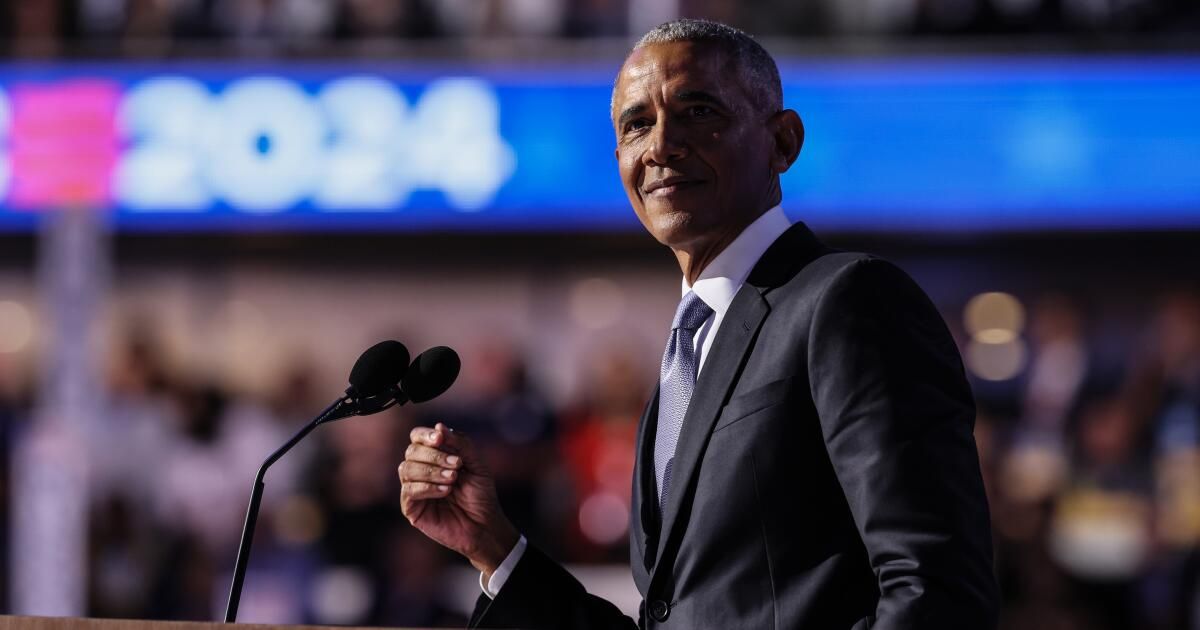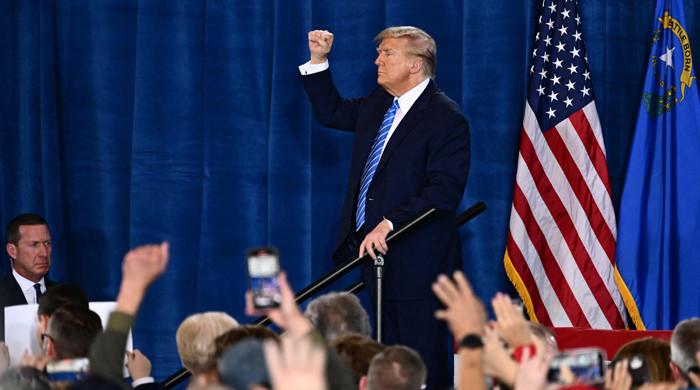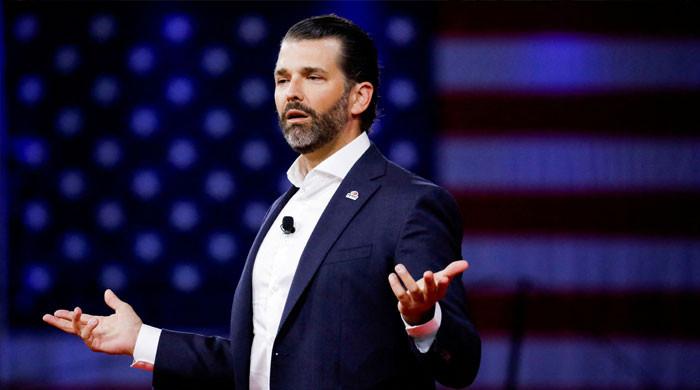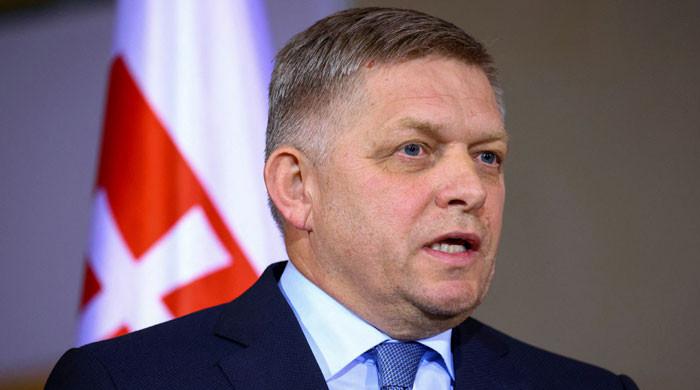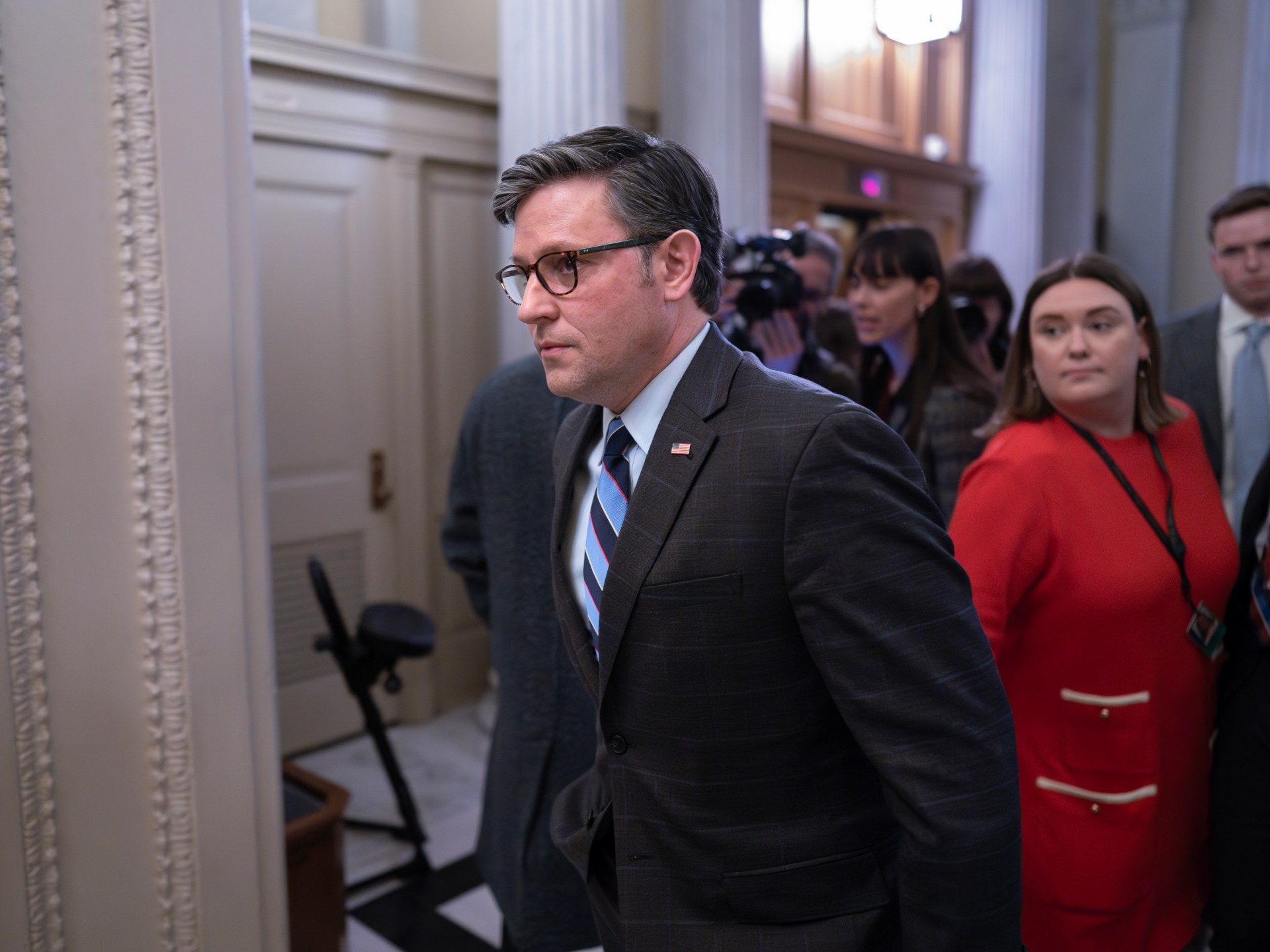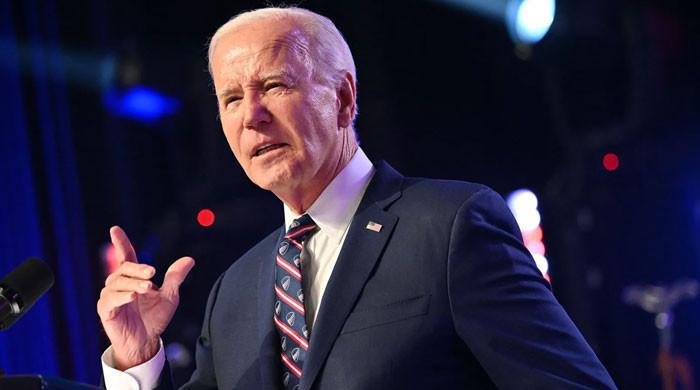Somewhere between President Biden’s decision to drop out of the presidential race last month and Barack and Michelle Obama’s rousing speeches at the Democratic National Convention on Tuesday night, the ruling Democratic Party decided it was once again the party of “hope.”
While Vice President Kamala Harris and other Democrats will fight for a “hopeful, forward-thinking America,” their opponent, former President Trump, “wants us to think that this country is hopelessly divided,” former President Obama said.
“Hope is returning!” his wife said.
It’s a familiar mantra for the Obamas, one that has already played out in the party. Barack Obama wrote a book called “The Audacity of Hope” and ran on that concept in the 2008 election and won, with posters of his face in bright colors above the letters HOPE that seemed omnipresent in that political cycle.
But Obama was up against a Republican Party that had been in power for eight years under President George W. Bush. He was running not just on “hope” but on “change,” which seemed a natural fit.
For a party already in power, like the Democrats, “hope” is perhaps a less expected, more unique and, in some ways, far bolder rallying cry. It cannot be a rejection of where the country is headed, but only of where it was headed in the past and where it might be headed again.
It also makes “perfect sense” in this political moment, said Bob Shrum, director of USC’s Center for Political Futures.
Democrats are pushing an incredibly clear message, one that consists of two parts, Shrum said. The first part is that “Trump is bad,” something that has made it easy for his opponents to argue “because of the things he says,” Shrum said. “Every day he proves that he is bad.”
The second part of the message is that “there is a new path forward” with Harris, Shrum said, and she and her surrogates, including the Obamas, have been selling that part, too.
Of course, Democrats' claim to the mantle of “hope” is only possible thanks to several unique circumstances.
It's possible because an older, less inspiring, one-term incumbent president was replaced at the last minute by his much younger vice president, whose victory would shatter one of the country's oldest and most enduring glass ceilings by placing a woman of color in its top office for the first time.
Hope as a concept would not have worked for Biden, whose age and mental acuity were in question and who seemed to be lurching toward election with little political wind in his sails. Hope would have seemed absurd as a Biden slogan, not just because of his tenure, but because of his decades of belonging to the old guard of American politics.
This is also possible because Harris is facing Trump, a former president who served only one term and whose bid for a second term (which beat out those of newer Republican faces) promises a return to an earlier chapter rather than the beginning of a promising new one.
A scene Tuesday night at the Democratic National Convention.
(Robert Gauthier/Los Angeles Times)
For Harris, a message of “hope” seems like a natural political message, just as it was for Obama, Shrum said, and not least because it has been on the lips of many Democrats since Biden stepped aside. Like Obama and unlike Biden, Harris can present herself not only as hopeful, she said, but also as change.
“She’s a departure from Donald Trump,” Shrum said. “She’s a departure by virtue of her personality and the way she behaves with people. And I think that’s thrown the Trump people off. They don’t know where to go.”
Loren Goldman, an associate professor of political science at the University of Pennsylvania, has studied the use of hope as a political tool throughout history. He said he is not surprised that Democrats are “embracing the language of hope.”
It allows them to “claim the mantle of the future” after being bogged down by concerns about Biden’s age, allows them to position Harris as an heir to Obama’s legacy, and contrasts her nicely with Trump, whose “invocation of American carnage shockingly rejected hope.”
Democrats know that many of their supporters have gone from fearing a devastating loss under Biden to expecting a close win under Harris. Michelle Obama tapped directly into that sentiment, acknowledging its novelty and comparing it to her own recent, pre-Harris fears.
“To be honest, I realize that until recently, I have regretted the fading of that hope, and perhaps you have experienced the same feelings,” she said. “That deep emptiness in the stomach, a palpable sense of dread for the future.”
But now, Obama said, Americans of all political stripes have a chance to be “the antidote to the darkness and division” they see — by combining “hope” with “action” and voting for Harris.
They can “stand up for what we know in our hearts is right,” he said, “not just our basic freedoms, but decency and humanity, basic respect, dignity and empathy, the values that are the very foundation of this democracy.”
Former President Obama echoed the same sentiments, saying Harris represented hope for a better future, and Trump was a repetition of the past.
“We’ve all seen that movie before,” he said of Trump. “And we all know the sequel is usually worse!”
The United States is “ready for a new chapter” and “ready for a better story,” Obama said.
The message clearly resonated with many of the party's supporters in the audience, who cheered both Obamas. More than one person wept openly on the convention floor.
Political experts say both hope and fear can be powerful political motivators. While Republicans have opted for the latter, with much of their own convention focused on the threat of undocumented immigrants and dangerous criminals, Democrats are clearly banking on the former.
Whether this will resonate enough with average American voters remains to be seen, especially those concerned about the current state of the country, struggling with inflation, or worried about immigration or foreign policy under Biden, whose record Harris cannot entirely escape.
Hope can be a difficult thing to tap into, but there are signs that it is working.
In February, a New York Times/Siena poll found that just 10% of Biden voters said they were happy, excited or hopeful about the election, compared with 20% of Trump voters. The same poll last month found that 21% of Harris voters felt that way, compared with 29% of Trump voters.
Shrum said young voters may be especially motivated by hope, and their support for Harris is much higher than it was for Biden. A Times/Siena poll in June showed Biden leading Trump by 6 percentage points among registered voters under 30 nationally. Late last month, the same poll showed Harris leading Trump among the same voters by 18 points.
Shrum said that change is important. “They are going to come,” he said. “The enthusiasm has increased a lot.”
Mark DiCamillo, a political pollster for decades and director of polling at UC Berkeley’s Institute of Governmental Studies, said being the “candidate of hope and optimism is, generally speaking, a good thing” in American politics.
Still, she said, presidential votes are also deeply personal decisions for many Americans — decisions they make based on their personalities — and many still don’t feel like they know Harris. Her job during her scheduled speech Thursday at the Democratic National Convention, she said, is to change that, to show that she doesn’t just represent hope but can inspire it.
“She has to make people feel comfortable with her. Can she command authority? Project strength on the world stage?” DiCamillo said. “There are a lot of things she has to do to bolster her image with voters and show that she is up to the task.”

